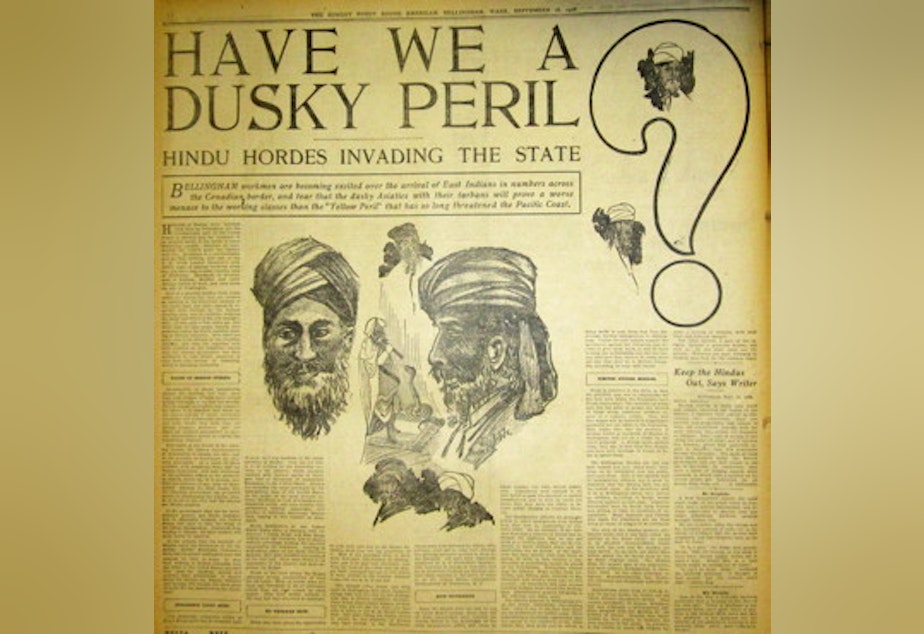Eerie parallels between 1907 Bellingham riots and anti-Sikh hate in 2017

The Bellingham riots of 1907 made national news: Hundreds of white workers viciously attacked east Indian men, mostly Sikhs.
"They dragged them out of their beds, and threw their belongings in the streets, and beat them, and warned them to leave Bellingham at once," explains historian Seema Sohi.
For Sohi, this history is personal. She herself is Sikh, and she got her doctorate at the University of Washington, where she researched and wrote about the Bellingham riot. Her book about it is "Echoes of Mutiny."
Sikhs migrated to the Pacific Northwest and the Bellingham area in search of lumber mill work in the early 1900s. In 1907, white workers in Bellingham blamed Sikhs for taking lumber mill jobs that they saw as "theirs," Sohi explains, and "ultimately the mob was successful in ridding Bellingham of almost every South Asian worker."
But the Bellingham riot was explicitly about race. In the rhetoric of the era, "'a tide of turbans," as they called it, was going to invade the Pacific Coast states, Sohi says, "and it was the job of the working man to protect the racial composition of the nation."
Sponsored
This anti-Sikh incident was part of a larger wave of anti-immigrant rhetoric and violence around the turn of the 20th century that also targeted and barred immigrants from China, Japan and other countries. Sohi explains that anti-immigrant sentiment continued into the next decade, when Indian worker migration to Washington state was almost completely halted after Congress passed the Immigration Act of 1917.
Sohi says the Bellingham riot made a statement "of racial terror that says this is our country and these are our jobs."
And she sees eerie parallels between that history, recent political rhetoric and the recent surge in anti-immigrant incidents in 2017, including a recent shooting of a Sikh man in Kent.
It's not clear yet exactly what motivated the shooter down in Kent, who allegedly told the victim, "go back to your country." But the FBI and Department of Justice have opened a civil rights investigation into the incident as a possible hate crime.
Sikh leaders say they've seen an increase in hate incidents in Washington state and across the country this year, from violence to bullying in the schools. And they're calling on the Trump administration to create a special hate crime task force.

